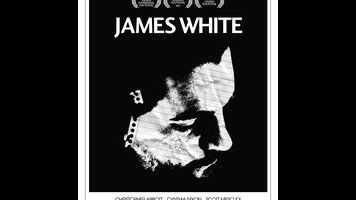Movies and TV are full of people whose problems aren’t really problems, though few are as maddeningly obtuse about it as the title character of James White. At the start of the movie, James’ father has just died, which is a rough thing for anyone to go through—except that James seems like a guy who was closer to his dad’s money than to his actual dad. In one of the film’s first scenes, he stumbles late into his family’s wake after a hard night of clubbing, and then is rude to both his mother and his stepmother—the latter of whom he just recently met—before bailing early to go to a dive bar, where he gets into a fight. James tries to explain away his erratic behavior as the byproduct of shock and grief, saying that he just needs to get away for a while and clear to head. But his mom knows the score. “All you do is take breaks,” she sighs.
So James White’s title character is an entitled, self-centered asshole. But the movie about him is still a marvel: an honest, moving, and occasionally even funny portrait of what happens when a cripplingly immature young man gets hit with one reality check after another. The death of James’ father is just the beginning. In the months that follow, setbacks and tragedies pile up, almost crushing a guy who has trouble just showing up on-time to a job interview, let alone dealing with a major family crisis.
James White would be a lot harder to take without the nuanced performance of Girls’ Christopher Abbott as James, and the more heartbreaking turn by Cynthia Nixon as his mother Gail. It’d be a stretch to say that Abbott makes James “likable,” but he does make it easier to understand how this character has survived into his late 20s without accomplishing much. James has flashes of anger, and is always looking for a reason to go get hammered with his friends. But he also has a fair amount of charisma. He can be fun, and he can be tender. He has a special connection with Gail, who at the start of James White is still recovering from a tough fight with cancer—which returns aggressively halfway through the film. It’s hard not to be sympathetic to someone who fights as hard as James does to guide his delirious mom through the labyrinthine health care system, and who holds her and mops her brow when she’s sweating and puking through the night.
James White is the debut feature of writer-director Josh Mond, who’s part of a filmmaking collective with his former NYU classmates Antonio Campos and Sean Durkin. Mond served as a producer on his friends’ Martha Marcy May Marlene, Afterschool, and Simon Killer, and James White shares with those films a sense of immediacy, and an unexpected commitment to narrative. Mond holds tight on Abbott’s face through a lot of the picture, watching the actor’s many reactions—sometimes comically exasperated, sometimes completely overwhelmed—as the story unfolds. The movie follows James as he takes off on a tropical vacation (“When I come back, I will be ready for life,” he insists), has a frenzied romantic fling with a teenager, and tries to parlay a few sloppy hand-written short stories into a regular gig writing for a magazine edited by one of his dad’s old business associates. A lot happens in James White, all related to the hero’s inadequate understanding of what it means to be an adult.
It’d be easy to dismiss James White sight unseen, because it’s not like American independent cinema needed more stories about arrested adolescent city-dwellers (or terminal illnesses, for that matter). But Mond and Abbot have such a rich understanding of James—a man who uses both his serious and his paltry troubles as an excuse to be as selfish and lazy as he would be on any ordinary day. The character is amusingly ridiculous in the movie’s first half, but as James’ stresses intensify, James White becomes more and more gripping, and subtly devastating.
Mond has said that this film was inspired by his own mother’s death, which may be why it feels so refreshingly frank and realistic—and even self-critical. This isn’t one of those movies where someone else’s sickness helps a shallow dude become a marginally nicer person. It’s more like an existential horror story, about someone who comes face to face with his own weaknesses when he’s on the bathroom floor with his dying mom—unable to help, and unable to flee.










![Rob Reiner's son booked for murder amid homicide investigation [Updated]](https://img.pastemagazine.com/wp-content/avuploads/2025/12/15131025/MixCollage-15-Dec-2025-01-10-PM-9121.jpg)

























![HBO teases new Euphoria, Larry David, and much more in 2026 sizzle reel [Updated]](https://img.pastemagazine.com/wp-content/avuploads/2025/12/12100344/MixCollage-12-Dec-2025-09-56-AM-9137.jpg)




